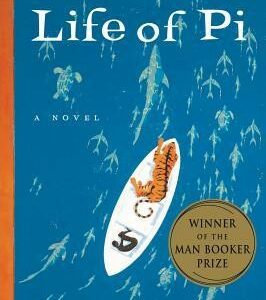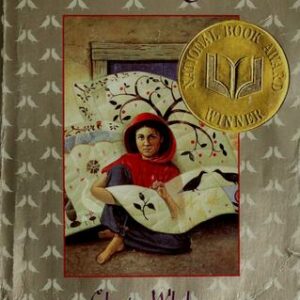Southern Religion and Christian Diversity in the Twentieth Century
$29.95
| Title | Range | Discount |
|---|---|---|
| Trade Discount | 5 + | 25% |
- Description
- Additional information
Description
Essays by the distinguished historian of southern religion Wayne Flynt, that illuminate the often overlooked complexity among southern Protestants.
Throughout its dramatic history, the American South has wrestled with issues such as poverty, social change, labor reform, civil rights, and party politics, and Flynt’s writing reaffirms religion as the lens through which southerners understand and attempt to answer these contentious questions. In Southern Religion and Christian Diversity in the Twentieth Century, however, Flynt gently but persuasively dispels the myth—comforting to some and dismaying to others—of religion in the South as an inert cairn of reactionary conservatism.
Flynt introduces a wealth of stories about individuals and communities of faith whose beliefs and actions map the South’s web of theological fault lines. In the early twentieth century, North Carolinian pastor Alexander McKelway became a relentless crusader against the common practice of child labor. In 1972, Rev. Dr. Ruby Kile, in a time of segregated churches led by men, took the helm of the eight-member Powderly Faith Deliverance Center in Jefferson County, Alabama and built the fledgling group into a robust congregation with more than 700 black and white worshippers. Flynt also examines the role of religion in numerous pivotal court cases, such as the US Supreme Court school prayer case Engel v. Vitale, whose majority opinion was penned by Justice Hugo Black, an Alabamian. These fascinating case studies and many more illuminate a religious landscape of far more varied texture and complexity than is commonly believed.
Southern Religion and Christian Diversity in the Twentieth Century offers much to readers and scholars interested in the South, religion, and theology. Writing with his hallmark wit, warmth, and erudition, Flynt’s Southern Religion and Christian Diversity in the Twentieth Century is a vital record of gospel-inspired southerners whose stories revivify sclerotic assumptions about the narrow conformity of southern Christians.
Throughout its dramatic history, the American South has wrestled with issues such as poverty, social change, labor reform, civil rights, and party politics, and Flynt’s writing reaffirms religion as the lens through which southerners understand and attempt to answer these contentious questions. In Southern Religion and Christian Diversity in the Twentieth Century, however, Flynt gently but persuasively dispels the myth—comforting to some and dismaying to others—of religion in the South as an inert cairn of reactionary conservatism.
Flynt introduces a wealth of stories about individuals and communities of faith whose beliefs and actions map the South’s web of theological fault lines. In the early twentieth century, North Carolinian pastor Alexander McKelway became a relentless crusader against the common practice of child labor. In 1972, Rev. Dr. Ruby Kile, in a time of segregated churches led by men, took the helm of the eight-member Powderly Faith Deliverance Center in Jefferson County, Alabama and built the fledgling group into a robust congregation with more than 700 black and white worshippers. Flynt also examines the role of religion in numerous pivotal court cases, such as the US Supreme Court school prayer case Engel v. Vitale, whose majority opinion was penned by Justice Hugo Black, an Alabamian. These fascinating case studies and many more illuminate a religious landscape of far more varied texture and complexity than is commonly believed.
Southern Religion and Christian Diversity in the Twentieth Century offers much to readers and scholars interested in the South, religion, and theology. Writing with his hallmark wit, warmth, and erudition, Flynt’s Southern Religion and Christian Diversity in the Twentieth Century is a vital record of gospel-inspired southerners whose stories revivify sclerotic assumptions about the narrow conformity of southern Christians.
Essays by the distinguished historian of southern religion Wayne Flynt, that illuminate the often overlooked complexity among southern Protestants
Wayne Flynt is a distinguished university professor emeritus at Auburn University and the author or coauthor of twelve books, including Alabama in the Twentieth Century; Alabama Baptists: Southern Baptists in the Heart of Dixie; Dixie's Forgotten People: The South's Poor Whites; Taking Christianity to China: Alabama Missionaries in the Middle Kingdom, 1850–1950; and a memoir, Keeping the Faith: Ordinary People, Extraordinary Lives. His numerous awards include the Lillian Smith Book Award, the Clarence Cason Award in Nonfiction Writing, the James F. Sulzby Book Award (twice), the Alabama Library Association Award (twice), the Judson-Rice Award by the national news journal Baptists Today, and induction into the Alabama Academy of Honor.
Foreword by Charles A. Israel and John M. Giggie Preface Introduction Chapter 1. Growing Up Baptist in Anniston, Alabama: The Legacy of the Reverend Charles R. Bell Jr. Chapter 2. Dissent in Zion: Alabama Baptists and Social Issues, 1900–1914 Chapter 3. Alabama Methodists and the Social Gospel, 1900–1930 Chapter 4. Organized Labor, Reform, and Alabama Politics, 1920 Chapter 5. Religion in the Urban South: The Divided Religious Mind of Birmingham, 1900–1930 Chapter 6. "Feeding the Hungry and Ministering to the Broken Hearted": The Presbyterian Church in the United States and the Social Gospel, 1900–1920 Chapter 7. Southern Baptists and Appalachia: A Case Study of Modernization and Community Chapter 8. Religion at the Polls: A Case Study of Twentieth-Century Politics and Religion in Florida Chapter 9. One in the Spirit, Many in the Flesh: Southern Evangelicals Chapter 10. Women, Society, and the Southern Church, 1900–1920" Chapter 11. "A Special Feeling of Closeness": Mt. Hebron Baptist Church, Leeds, Alabama Chapter 12. Religion for the Blues: Evangelicalism, Poor Whites, and the Great Depression Chapter 13. Conflicted Interpretations of Christ, the Church, and the American Constitution Chapter 14. The South's Battle over God Chapter 15. God's Politics: Is Southern Religion Blue, Red, or Purple? Notes Wayne Flynt's Works about Southern Religion Published in Books, Journals, and Anthologies from 1963 to 2011 Index
"Overall, scholars of the South in the 1920s and 1930s, particularly, will find detailed narratives that add depth to the scholarship of this period. Readers of this journal interested in Alabama history and the intersection of Progressive reform and religion would benefit from many of these essays, as would historians of evangelical religion and its increasing politicization since the rights movements of the late 1950s and 1960s."
—Journal of Southern History "Who better to write a book on southern evangelical religion than Dr. J. Wayne Flynt? This award-winning Distinguished Professor Emeritus at Auburn University, Baptist minister, and Sunday school teacher extraordinaire has devoted most of his professional life to this study. Now, readers have the opportunity to see wisdom, wit, and a wealth of information bundled together in a collection of some fifteen essays, written over the span of nearly fifty years."
—The Alabama Review “Southern Religion and Christian Diversity in the Twentieth Century is a splendid retrospective of a great scholar’s career. Flynt dismantles generalizations, shows individual complexity, and, as the title suggests, reveals ‘diversity,’ as well as any scholar I know.”
—Paul Harvey, coauthor of The Color of Christ: The Son of God and the Saga of Race in America and the author of Redeeming the South: Religious Cultures and Racial Identities among Southern Baptists, 1865–1925
—Journal of Southern History "Who better to write a book on southern evangelical religion than Dr. J. Wayne Flynt? This award-winning Distinguished Professor Emeritus at Auburn University, Baptist minister, and Sunday school teacher extraordinaire has devoted most of his professional life to this study. Now, readers have the opportunity to see wisdom, wit, and a wealth of information bundled together in a collection of some fifteen essays, written over the span of nearly fifty years."
—The Alabama Review “Southern Religion and Christian Diversity in the Twentieth Century is a splendid retrospective of a great scholar’s career. Flynt dismantles generalizations, shows individual complexity, and, as the title suggests, reveals ‘diversity,’ as well as any scholar I know.”
—Paul Harvey, coauthor of The Color of Christ: The Son of God and the Saga of Race in America and the author of Redeeming the South: Religious Cultures and Racial Identities among Southern Baptists, 1865–1925
“Flynt is one of the top scholars of southern religion, and his collected essays constitute an important contribution to the field. Always clearly written, solidly researched, and analytically vigorous, they represent a fine scholar working at the top of his form. This book should be on the mandatory reading list of anyone wishing to understand the nature of southern religion.”
—John B. Boles, author of The Great Revival, 1787–1805: The Origins of the Southern Evangelical Mind and The South Through Time
—John B. Boles, author of The Great Revival, 1787–1805: The Origins of the Southern Evangelical Mind and The South Through Time
Additional information
| Dimensions | 1 × 6 × 9 in |
|---|








